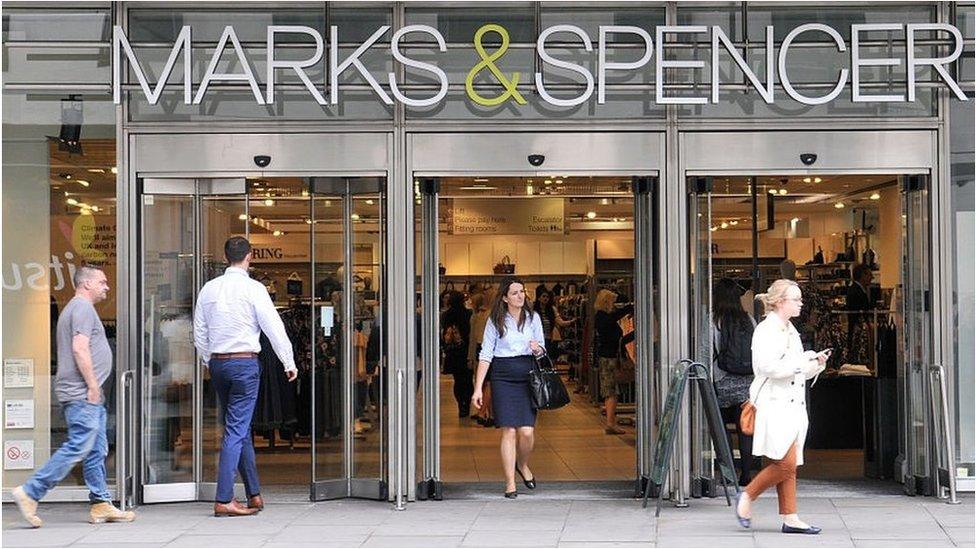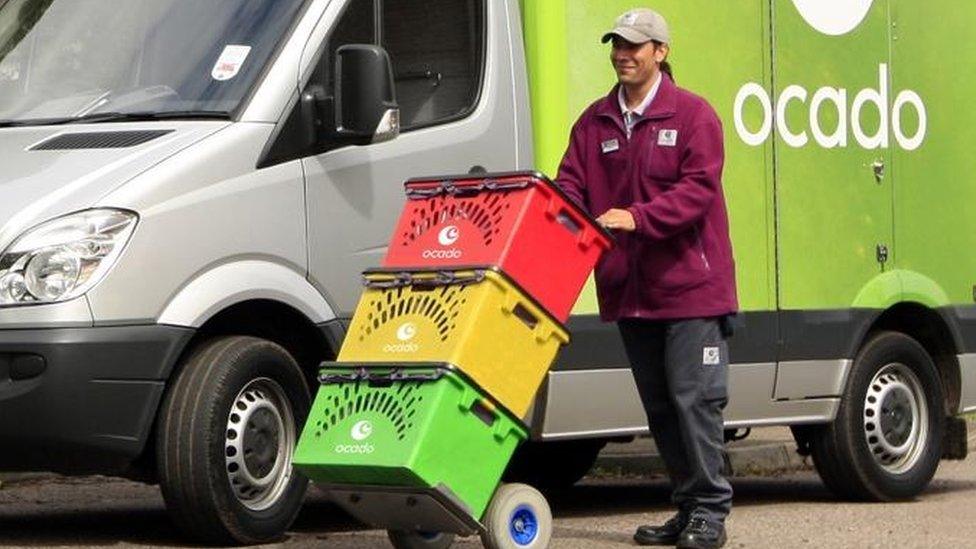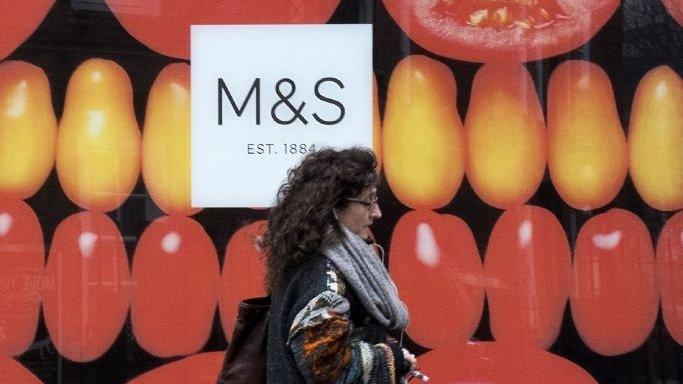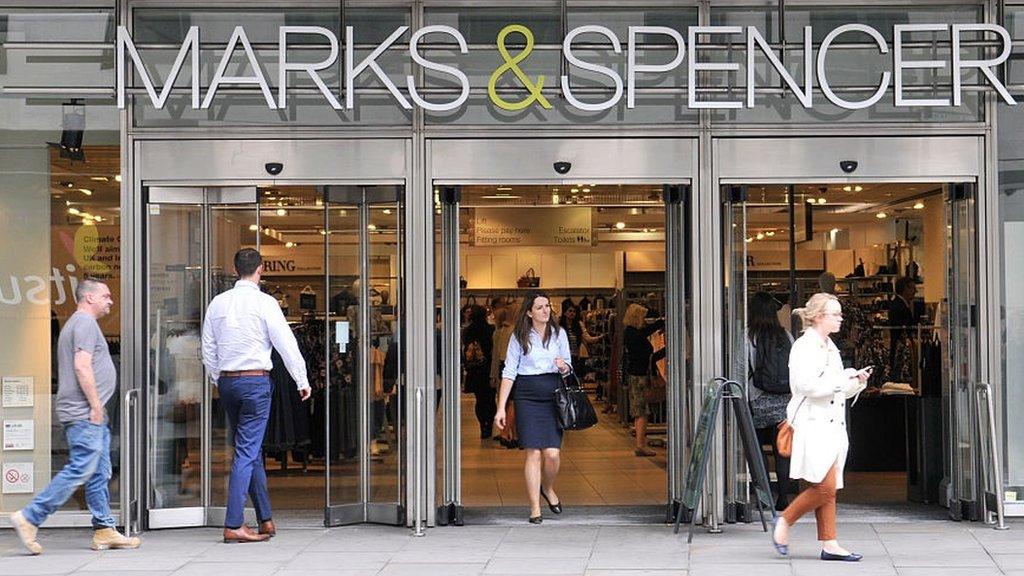Poor clothing sales see M&S's profits slide
- Published
- comments

Marks and Spencer profits dropped in the first half of its financial year following a sharp fall in demand for its clothes and home goods.
The High Street retailer said that while its food business was "outperforming the market", there had been issues in clothing and home.
Marks and Spencer is undergoing a transformation plan led by chief executive Steve Rowe.
He said after a "challenging" first half, it is now seeing improvements.
Overall, pre-tax profits tumbled by 17% to £176.5m on total sales down 2.1% to £4.86bn.
Like-for-like sales in clothing and home fell by 5.5% during the six months to 30 September, worse than an expected 4.3% drop.
In Wednesday's FTSE 250 trading, the company's shares fell 0.2% to 182 pence.
M&S said there had been "availability challenges" as a result of "supply chain issues and a shape of buy that remained too broad".
'Too slow'
The company is facing competition from fashion giants such as Primark on the High Street and Asos on the internet.
It said its clothing business "has historically been too slow to market" and had "too many slow-moving lines".
M&S also said it was going to ensure that they had enough product in all sizes, and would be quicker to restock popular and fast-selling items in stores.
In addition it said it would look to introduce slimmer cuts in clothing designs, which would be increasingly aimed at a "family market".
M&S said it was seeing a positive response to its current winter season clothing, which it says is a "better value product".
But retail expert Richard Hyman told BBC Radio Four's Today programme: "I think Marks and Spencer customers are not interested in price, as much as relevance. Making clothes cheaper is not the answer.
"When they talk about this season's offering, they are talking about a matter of weeks. The general outlook for Christmas trading is not looking very good across the trade."
In contrast, like-for-like sales in food grew by 0.9%, ahead of a forecast 0.3% rise.
To stem the decline in food, M&S forged a joint venture with Ocado in February, agreeing to buy 50% of its retail business for £750m.

M&S has signed a food delivery partnership with Ocado
But Mr Hyman said: "I can't see the central logic of the Ocado deal. I don't think they have to be online in food at all. Online [food retailing] in the UK is 7% of the market, suggesting people are not clamouring to buy food online."
And Neil Wilson, chief analyst at markets.com said that overall, change had been far too slow at the company.
But M&S boss Mr Rowe said the firm was now starting to see the benefits of its transformation plan. "For the first time we are beginning to see the potential from the far reaching changes we are making," he said.
However, while it forecast some improvement in trading in the second half of the year, market conditions remain challenging.
In September, M&S was relegated from the FTSE 100 index of Britain's biggest listed companies.
It marked the first time the retailer had not been a FTSE 100 member since the index was launched in 1984.
- Published4 September 2019

- Published22 May 2019

- Published27 February 2019

- Published7 November 2018
